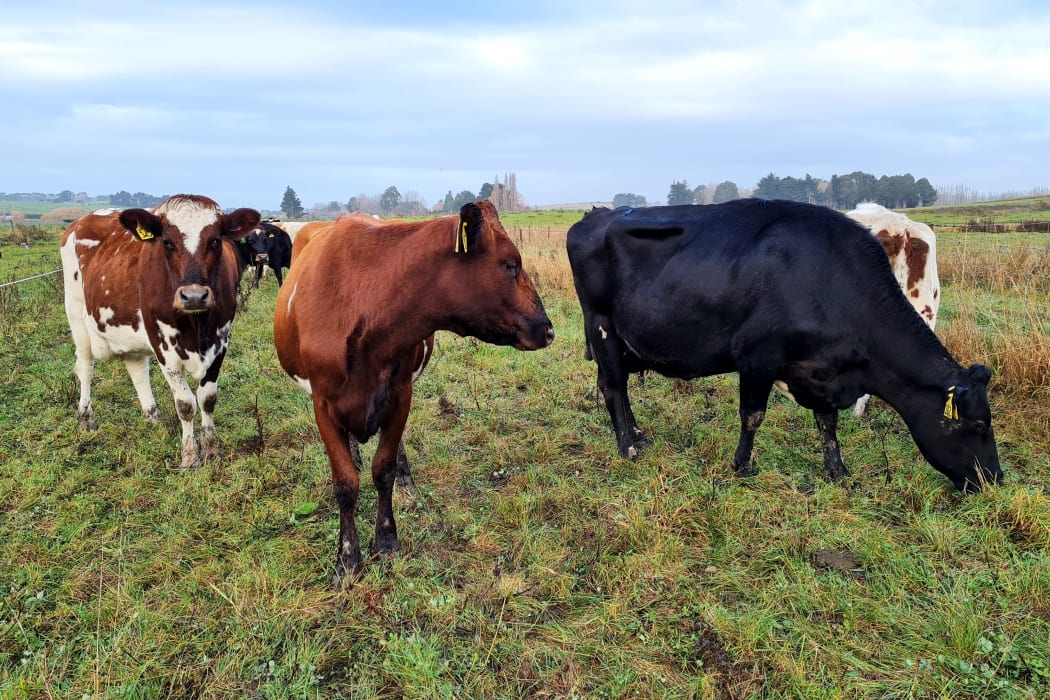The displacement of traditional beef and sheep farms in favour of dairy has led to social disintegration in New Zealand's farming communities, says rural support advocate Dianne Milne.
She was made an Officer of the NZ Order of Merit for services to the rural community in the New Years Honours List.

Photo: RNZ / Cosmo Kentish-Barnes
Dianne Milne is a true-blue West Coaster who grew up on a cattle ranch in the Matai Bay area and now resides on a small beef farm near Lake Brunner.
“I’ve only been away from the coast since boarding school and then a couple of years away at work when women had to leave the farm and go off to be an office worker or a nurse or something. So apart from that, I’ve been back here for 52 years.”
Milne's community involvement began about 40 years ago via farming discussion groups.
She went on to become provincial president of West Coast Federated Farmers, the first female chair of Rotomanu Federated Farmers and chair of the Rural Support Trust.
“As the jobs came up I sort of fell into them. When you saw something that needed doing, I just picked it up and ran with it, and it just carried on from there."
The main change she's seen on the West Coast through the years is the transition from sheep and beef farms to dairying, she says.
“When I first started here it was all sheep and beef. And over the years, probably starting about five years after I came here, dairying started to take over and that changed the whole culture of farming in the area because dairy farmers tend to move on reasonably quickly. So, the community involvement changed so much. Sheep and beef farmers were inter-generational, somebody’s grandfather was on the farm before then.
“That’s changed how people interact, as well. I guess that’s how the Rural Support Trust came about. People used to go to [farm] sales and stand there and have time to chat and maybe have a beer afterwards. That changed with the dairy scene so that farmers are not interacting and getting the support from each other that they used to.”
The mental health of farmers has been in the spotlight a lot recently, and Milne believes people are now more willing to reach out for help.
“With the advent of the Rural Support Trust and others, more people are willing to come forward and say ‘yes, I do need help’. It doesn’t have the stigma that it used to have. It’s made it easier for country people to ask for help, whereas they probably didn’t even need it so much back then. The pace of life isn’t what it is now.
“They had time to talk to neighbours, go to events. Halls and schools were a hub to get together… those are gone and people in the community are isolated.”
Milne says her hopes for the future are both simple and complex.
“I’d like to see West Coast weather going back to the odd flood, lovely hot summers, and farming being recognised and respected the way it should. That makes people feel better. If farmers feel they aren’t appreciated, being stigmatised, they’re not going to be happy. I’d like to see that divide between the rural and the urban communities disappear and everybody get together and be the same.”

